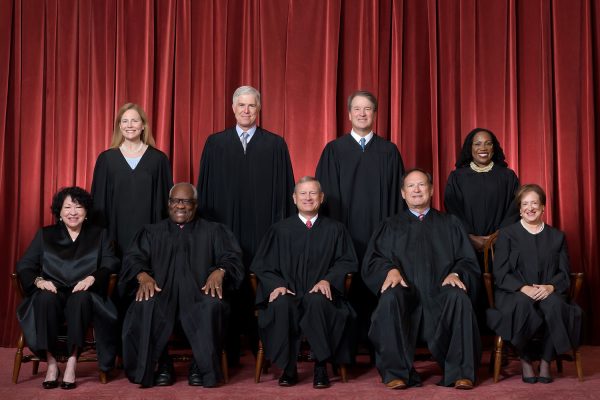Initially implemented in 1869, Section 3 of the 14th Amendment in the U.S. Constitution had one intended purpose: to keep ex-Confederate politicians out of Congress. A hundred and fifty years later, nobody expected that section to be significant ever again. Yet, the 14th Amendment has been thrust into the spotlight of U.S. politics these past few months.
Section 3 of the 14th Amendment bars any former or current representative, who has taken an oath of office, from being an official of the U.S. if they committed an “insurrection or rebellion” against the U.S. government.
In December, the Colorado Supreme Court ruled to remove former president Donald Trump from their 2024 presidential voting ballots. While the decision was divided, it was a 4-3 majority that voted to remove him as an option due to his involvement in an insurrection. “Trump incited an insurrection for his role in the Jan. 6, 2021, attack on the Capitol,” says Nicholas Riccardi, a political journalist from Associated Press News.
Since then, the question of Trump appearing on ballots has been taken to courts all over the United States; as of February 13, 2024, 35 states have had the case appear in courts with a majority keeping the case unresolved.
Maine’s Secretary of State Shenna Bellows ruled to remove Trump from Maine’s ballots, but since then the decision has been put on pause since Trump appealed to the Supreme Court and the case has yet to be voted on.
Kyle Bourne, a U.S. history and government teacher at Huntington Beach High School, “When you have conflicting opinions in multiple states about a national issue it usually goes through to the Supreme Court.”

If the Court rules in Colorado’s favor, Trump will not be automatically removed from all states’ ballots, but “it would open the door to the possibility of him being removed in other states…but the places in which he would be removed are not likely to vote for him anyway,” says Bourne.
Both Maine and Colorado have voted for the Democrat candidate in the past few elections, so the likelihood of Trump winning regardless of whether he is on the ballot is low. For Trump’s removal to make an impact, he would have to be removed in swing states (Nevada, Georgia, Wisconsin, Arizona, Michigan, and Pennsylvania), or states that typically vote for the Republican candidate.
If the Supreme Court rules in Trump’s favor, however, he will have to stay on the ballot in all states, including Colorado and Maine.
As of February 21, 2024, the Supreme Court has not made its final decision.
*UPDATE*
On March 4, 2024, the Supreme Court ruled to keep Trump on the ballot, reinstating Trump onto the ballots of Colorado and Maine. The ruling was unanimous, but three justices, Katanji Brown Jackson, Elena Kagan, and Sonia Sotomayer released a separate statement that follows the same opinion as the court.
Notably, Amy Coney Barrett, a Trump-assigned judge, also released her own statement, saying that “for present purposes, our differences are far less important than our unanimity: All nine Justices agree on the outcome of this case. That is the message Americans should take home.”
As it stands now, Trump is on the ballots nationwide, and this is not expected to change. However, he is not completely out of the woods, as his battle for immunity continues.









